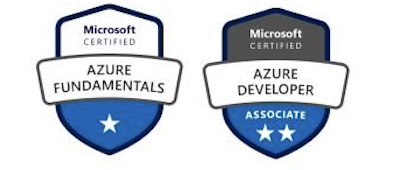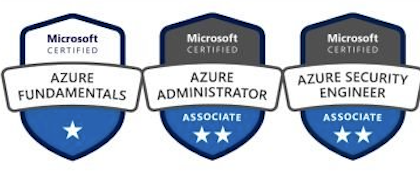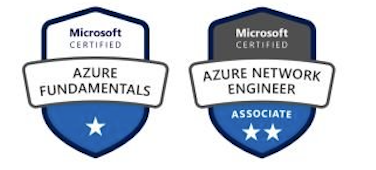
Cloud Certifications by Role
- Published on
- Authors

- Author
- Ram Simran G
- twitter @rgarimella0124
In today’s world, cloud computing plays a pivotal role in virtually every industry. From data storage to AI-driven analytics, businesses increasingly rely on cloud platforms to innovate and grow. With this, the demand for cloud professionals—those who can design, secure, and manage cloud services—has skyrocketed.
For professionals eager to break into cloud computing or advance their careers, obtaining cloud certifications can be a game-changer. But with so many roles and certifications available, where do you begin?
In this post, we’ll break down cloud certifications based on specific job roles, so you can chart the right course for your career. Whether you aspire to be a Solutions Architect, DevOps Engineer, or Cloud Developer, there’s a certification that fits your needs.
Solutions Architect
What does a Solutions Architect do?
Solutions Architects design scalable, secure, and cost-effective cloud solutions to meet business objectives. They need a broad understanding of cloud services, architecture best practices, and business strategy.
Certification Paths by Cloud Provider:
AWS:
- AWS Certified Solutions Architect – Associate
- AWS Certified Solutions Architect – Professional

Azure:
- Microsoft Certified: Azure Solutions Architect Expert

Google Cloud:
- Google Cloud Professional Cloud Architect

These certifications test your ability to design cloud architecture, select the appropriate services, and ensure scalability, fault tolerance, and security.
Cloud Developer
What does a Cloud Developer do?
Cloud Developers build and deploy applications in cloud environments, using cloud-native services and modern development practices like microservices, containers, and serverless computing.
Certification Paths by Cloud Provider:
AWS:
- AWS Certified Developer – Associate

Azure:
- Microsoft Certified: Azure Developer Associate

Google Cloud:
- Google Cloud Professional Cloud Developer

These certifications focus on cloud application development, working with APIs, and understanding cloud-native architecture patterns.
Cloud Data Engineer
What does a Cloud Data Engineer do?
Data Engineers design, build, and maintain data infrastructure, ensuring that data is properly stored, transformed, and available for analytics or machine learning models. This role requires expertise in big data tools, data lakes, and data pipelines.
Certification Paths by Cloud Provider:
AWS:
- AWS Certified Data Analytics – Specialty

Azure:
- Microsoft Certified: Azure Data Engineer Associate

Google Cloud:
- Google Cloud Professional Data Engineer

These certifications focus on cloud-based data architectures, ETL (Extract, Transform, Load) processes, and big data tools like Hadoop, Spark, and cloud-native services.
SysOps Administrator
What does a SysOps Administrator do?
SysOps Administrators are responsible for managing and monitoring cloud resources. They ensure the cloud infrastructure runs smoothly, maintain system health, and automate operational tasks.
Certification Paths by Cloud Provider:
AWS:
- AWS Certified SysOps Administrator – Associate

Azure:
- Microsoft Certified: Azure Administrator Associate

Google Cloud:
- Google Cloud Associate Cloud Engineer

These certifications emphasize operational best practices, monitoring, and automation in cloud environments.
DevOps Engineer
What does a DevOps Engineer do?
DevOps Engineers bridge the gap between development and operations, focusing on CI/CD (Continuous Integration and Continuous Deployment), automation, and improving development pipelines to optimize software delivery.
Certification Paths by Cloud Provider:
AWS:
- AWS Certified DevOps Engineer – Professional

Azure:
- Microsoft Certified: Azure DevOps Engineer Expert

Google Cloud:
- Google Cloud Professional Cloud DevOps Engineer

These certifications focus on the DevOps lifecycle, automation strategies, and building robust CI/CD pipelines using cloud services.
Cloud Security Engineer
What does a Cloud Security Engineer do?
As the name suggests, Cloud Security Engineers focus on securing cloud platforms. They design and implement security strategies, protect data, and ensure that applications comply with relevant security regulations.
Certification Paths by Cloud Provider:
AWS:
- AWS Certified Security – Specialty

Azure:
- Microsoft Certified: Azure Security Engineer Associate

Google Cloud:
- Google Cloud Professional Cloud Security Engineer

These certifications focus on cloud security best practices, encryption, threat detection, and identity access management (IAM).
Cloud Network Engineer
What does a Cloud Network Engineer do?
Network Engineers design, implement, and manage networking infrastructure in cloud environments. They ensure smooth communication between cloud services, on-premise data centers, and remote devices.
Certification Paths by Cloud Provider:
AWS:
- AWS Certified Advanced Networking – Specialty

Azure:
- Microsoft Certified: Azure Network Engineer Associate

Google Cloud:
- Google Cloud Professional Cloud Network Engineer

These certifications focus on VPC (Virtual Private Cloud), hybrid networking, security, and traffic management within cloud environments.
Machine Learning Engineer
What does a Machine Learning Engineer do?
Machine Learning Engineers use cloud services to build, train, and deploy machine learning models at scale. They work with large datasets and cloud-based AI services.
Certification Paths by Cloud Provider:
AWS:
- AWS Certified Machine Learning – Specialty

Azure:
- Microsoft Certified: Azure AI Engineer Associate

Google Cloud:
- Google Cloud Professional Machine Learning Engineer

These certifications focus on applying machine learning models to solve real-world business problems, using cloud-native tools and frameworks like TensorFlow, SageMaker, and Azure ML.
How to Choose the Right Certification for You
When deciding which certification to pursue, consider the following factors:
- Career goals: Are you aiming for a role in architecture, security, development, or data?
- Experience level: Are you just getting started, or do you already have experience and want to specialize?
- Market demand: Research which certifications are most in-demand in your industry or region.
- Cloud provider preference: If your organization already uses AWS, Azure, or Google Cloud, you might want to start there.
Conclusion
Cloud certifications provide a clear and structured way to advance your career in one of the fastest-growing industries. Whether you’re aiming to become a Solutions Architect, DevOps Engineer, or Cloud Developer, certifications from AWS, Azure, and Google Cloud can help you validate your expertise and open new career opportunities.
Remember, while certifications are important, gaining hands-on experience with cloud platforms is equally crucial. So, choose your certification path, prepare diligently, and take the first step toward cloud mastery!
Cheers,
Sim